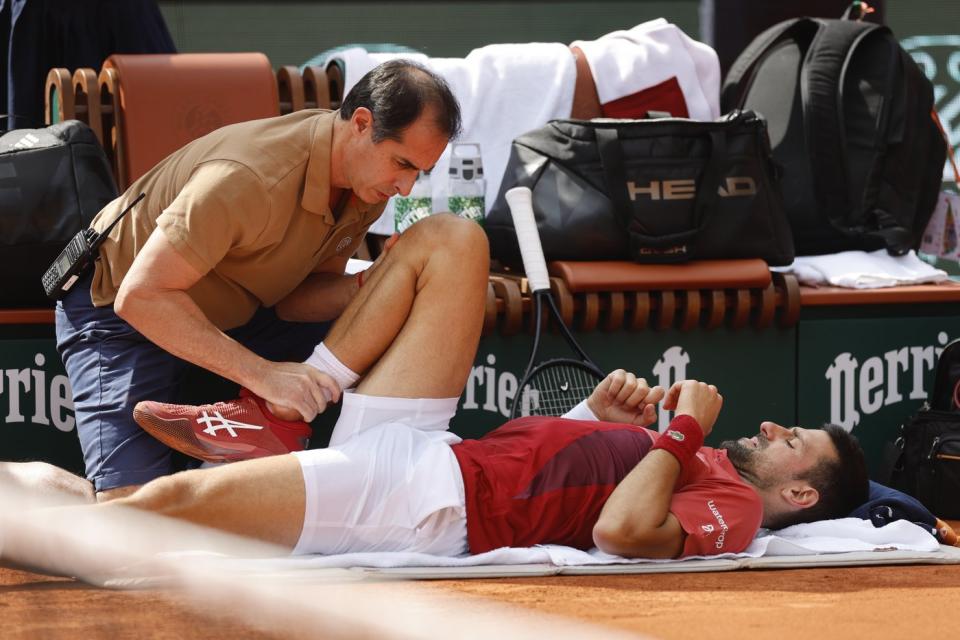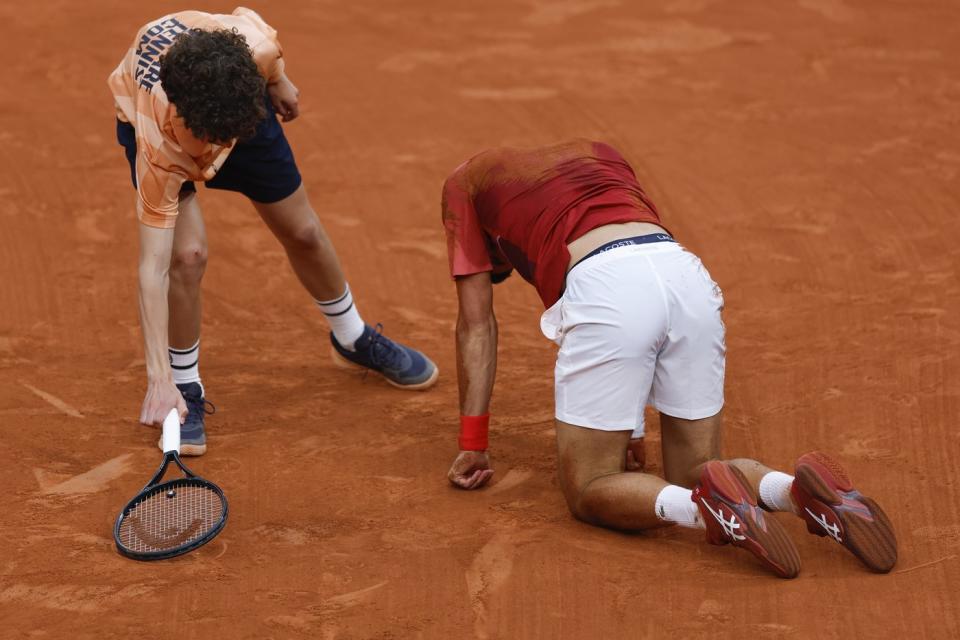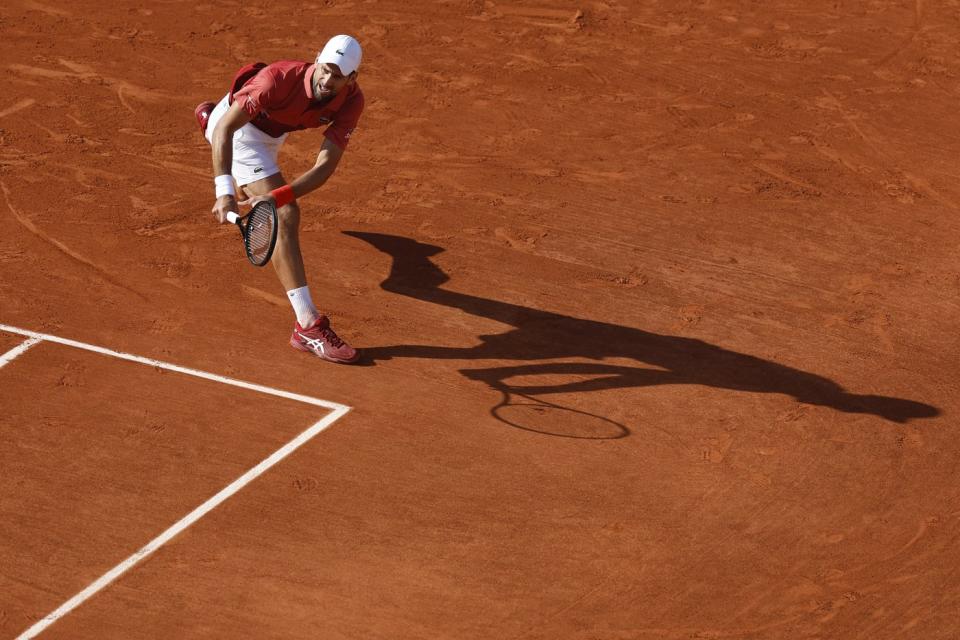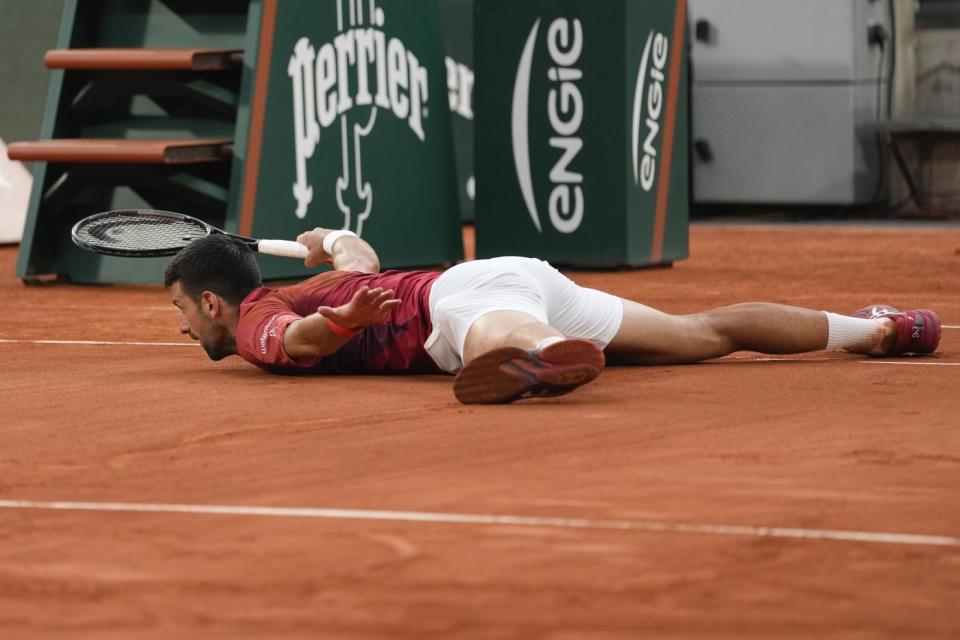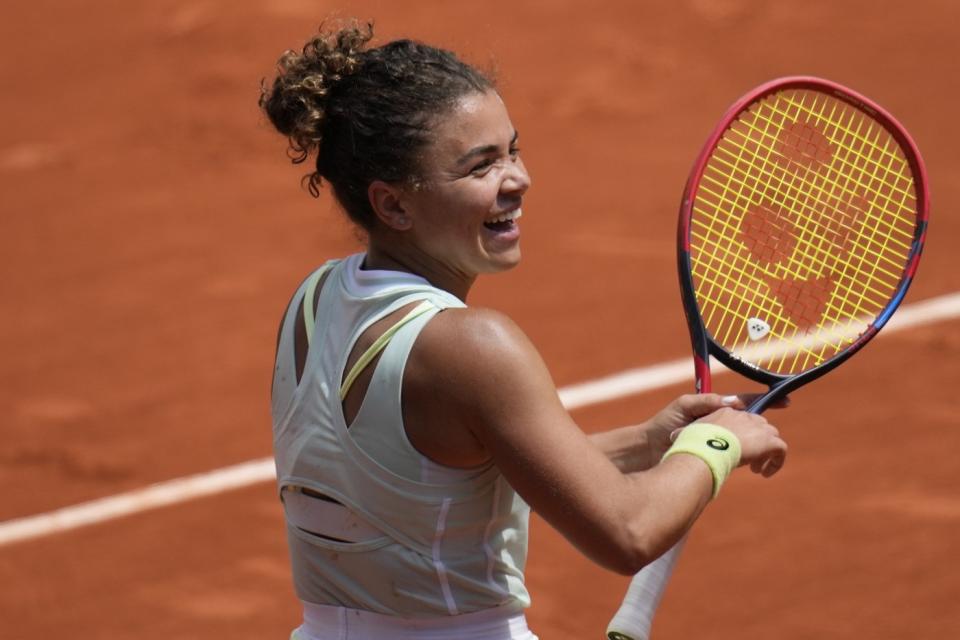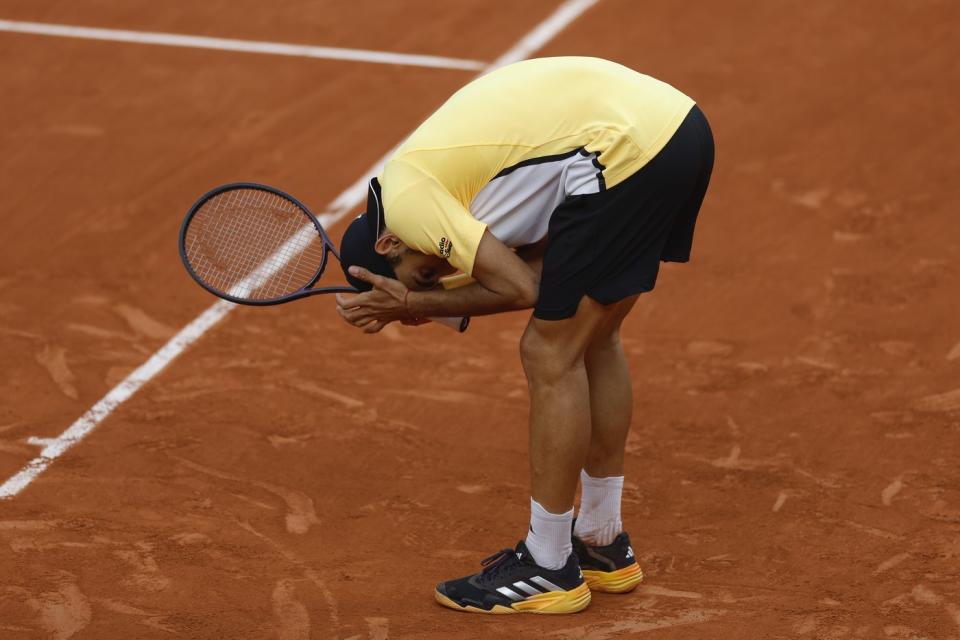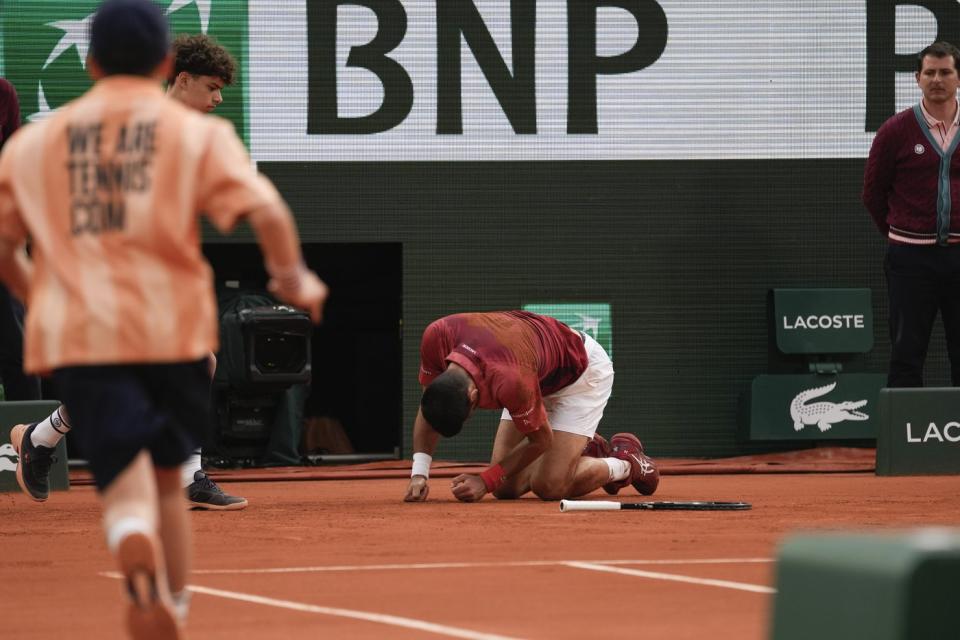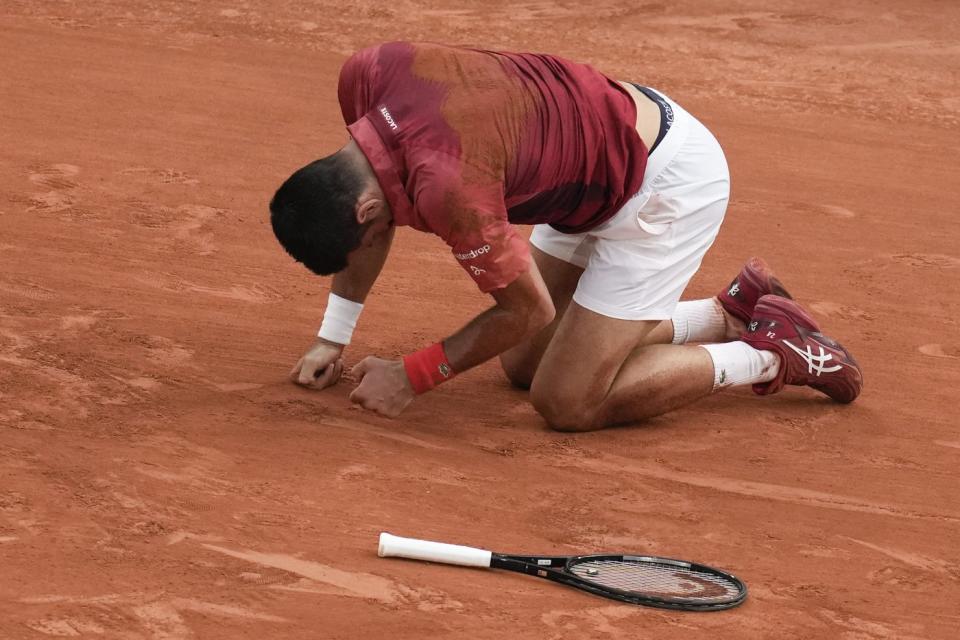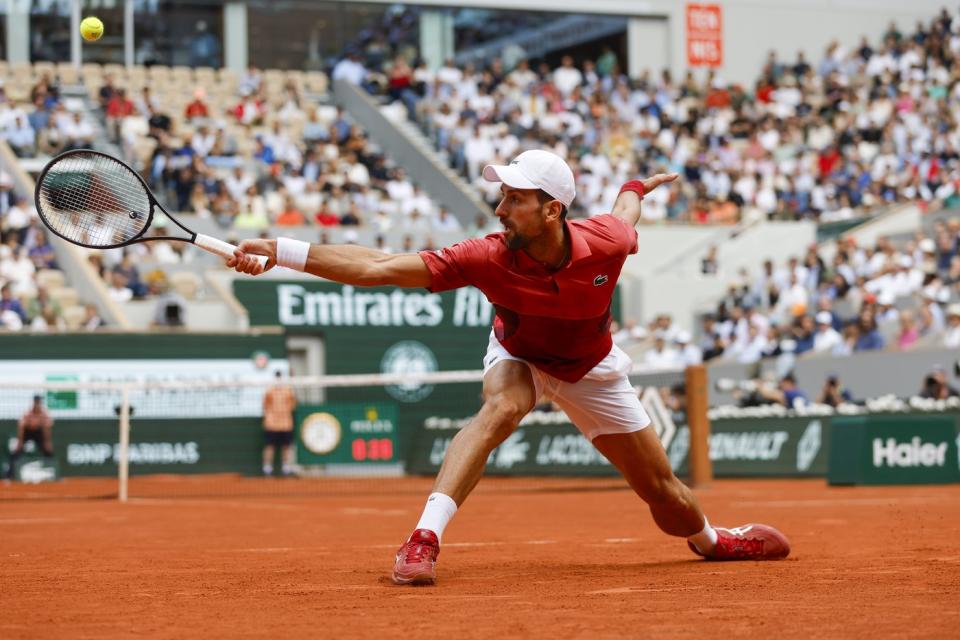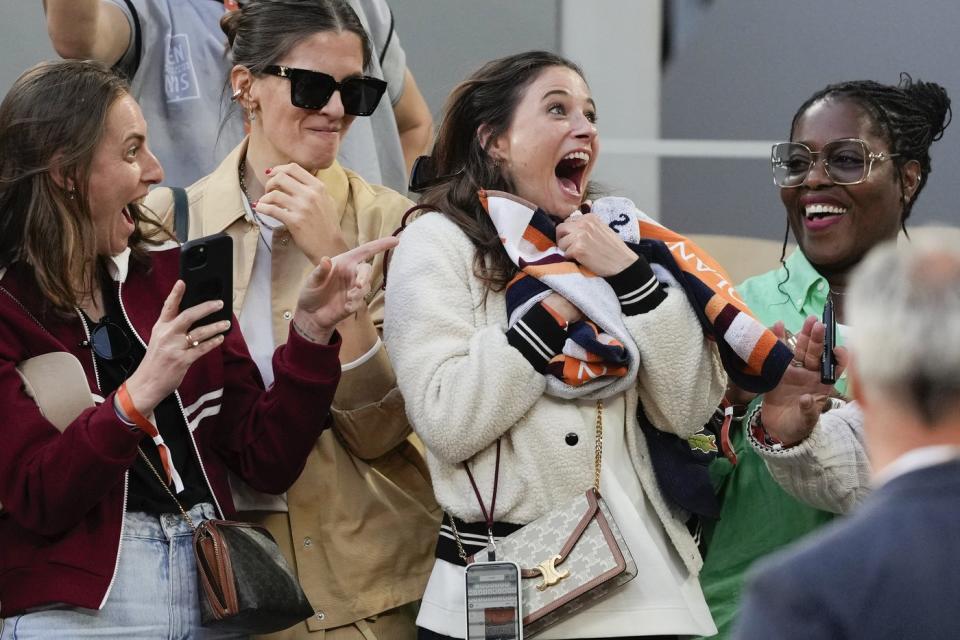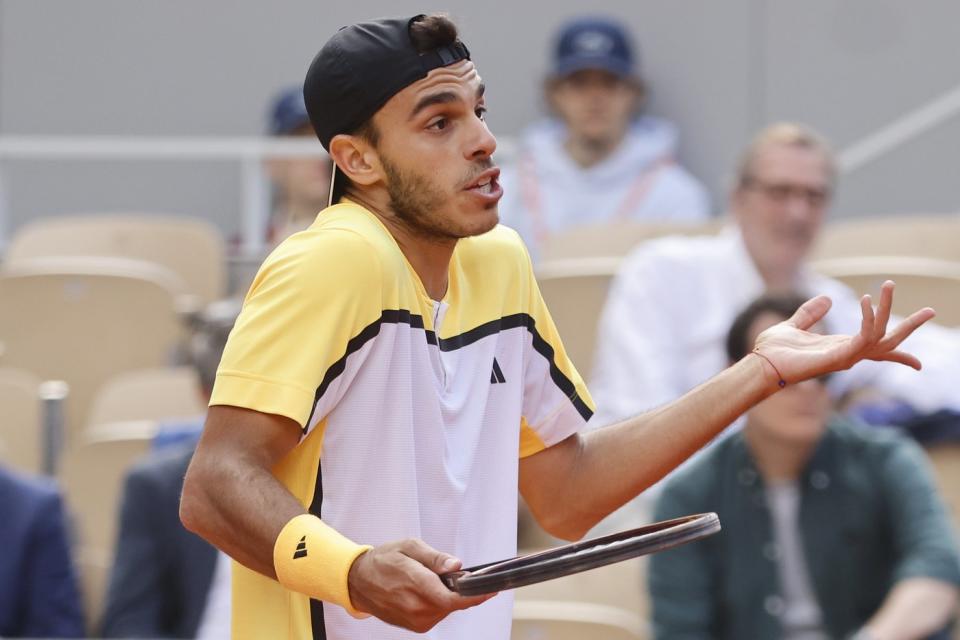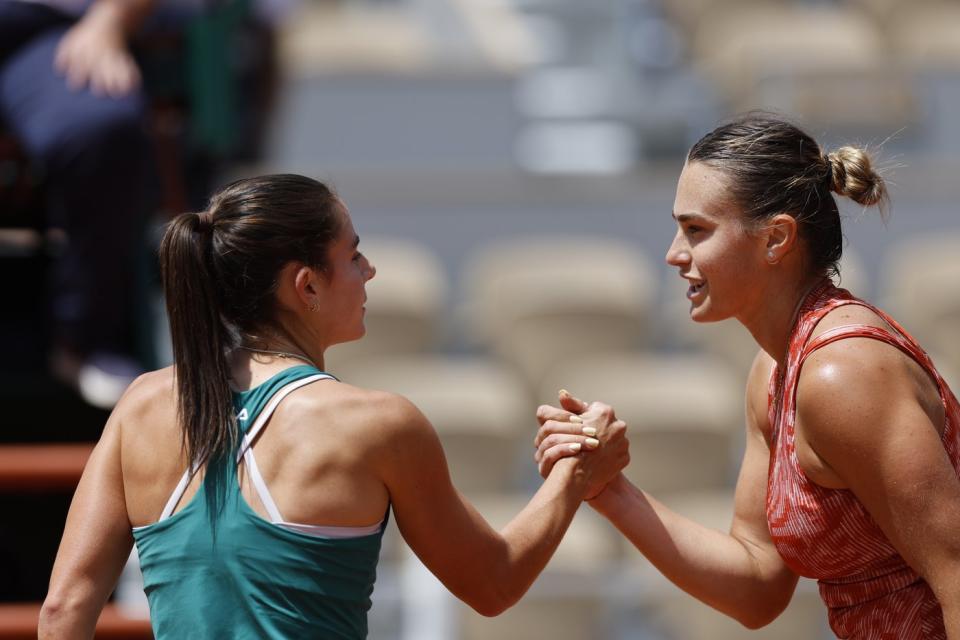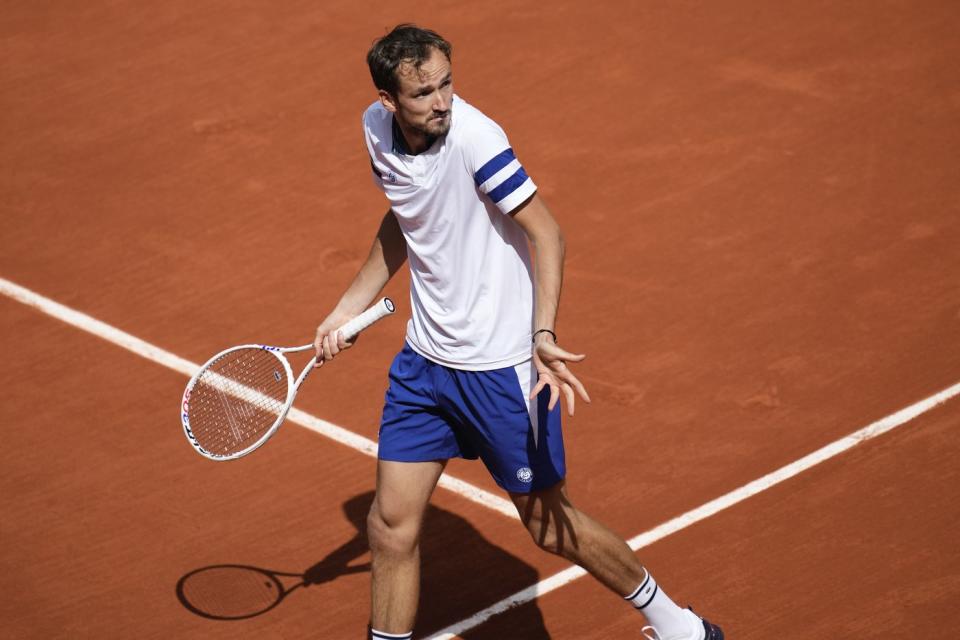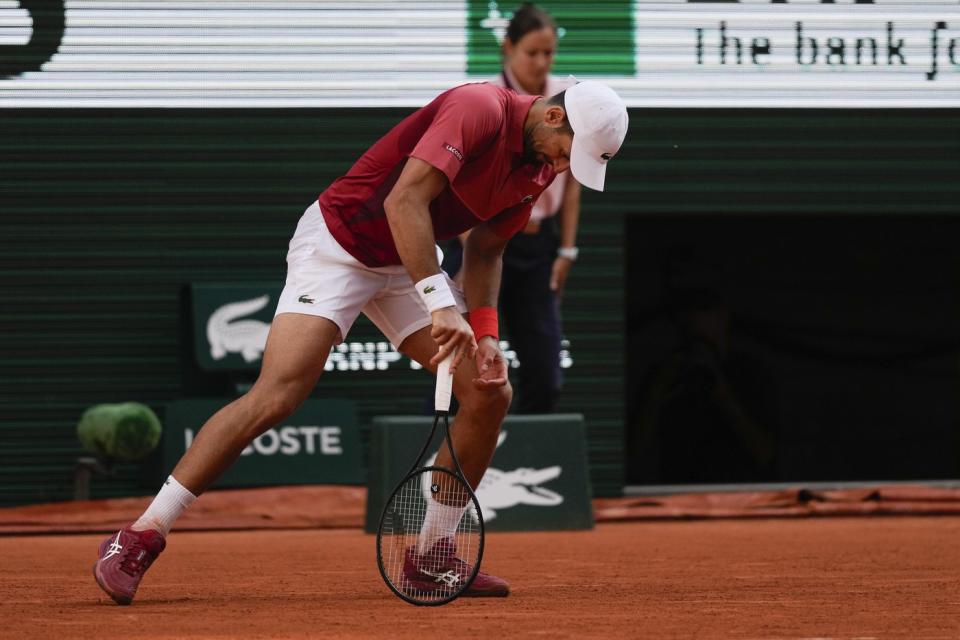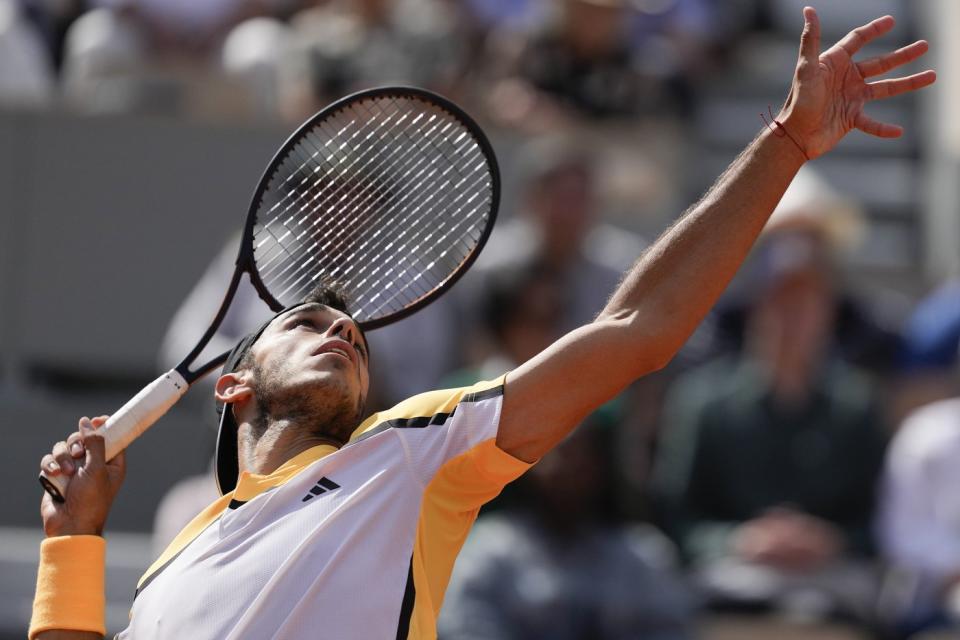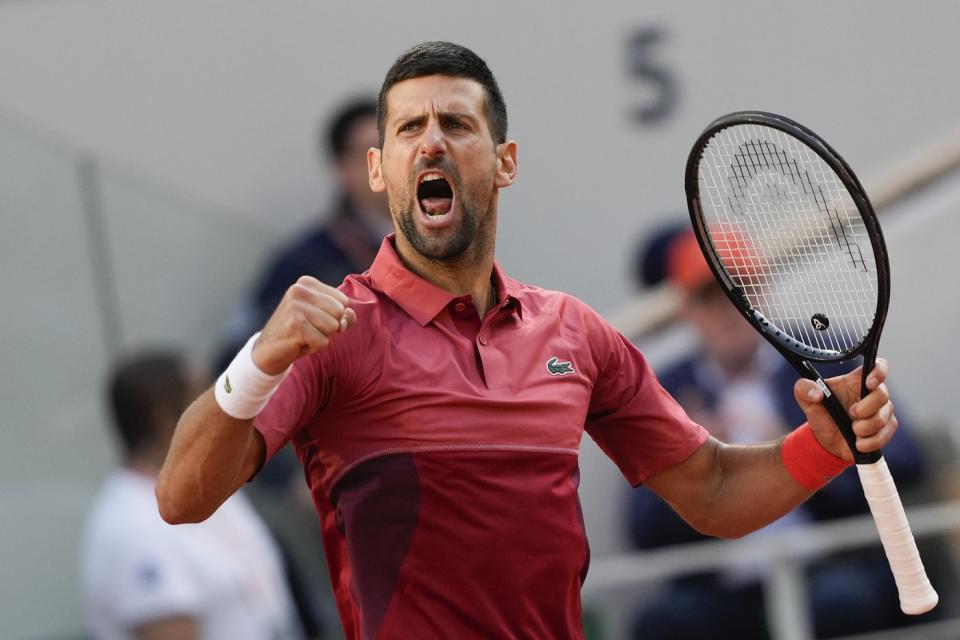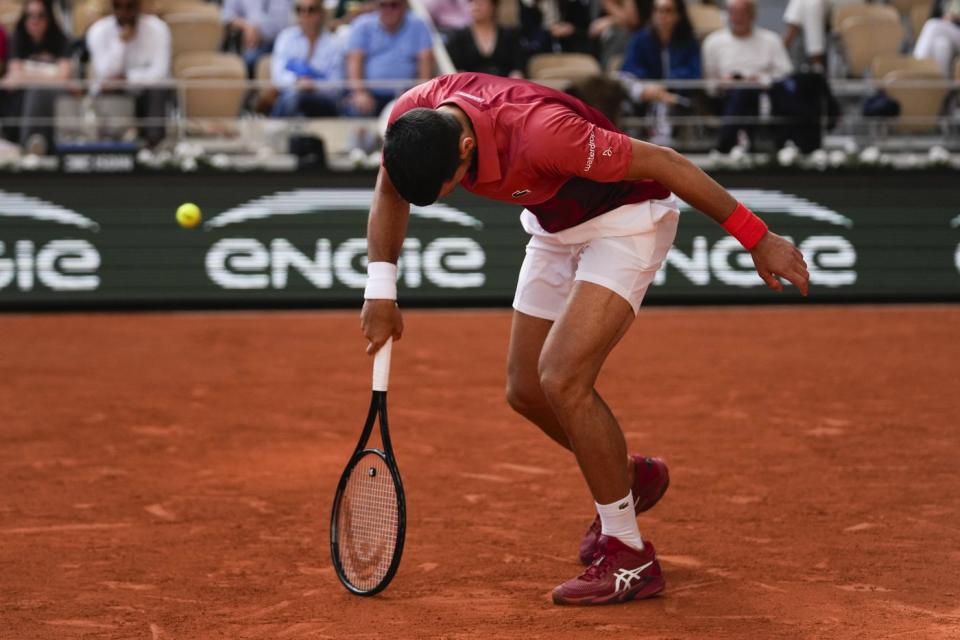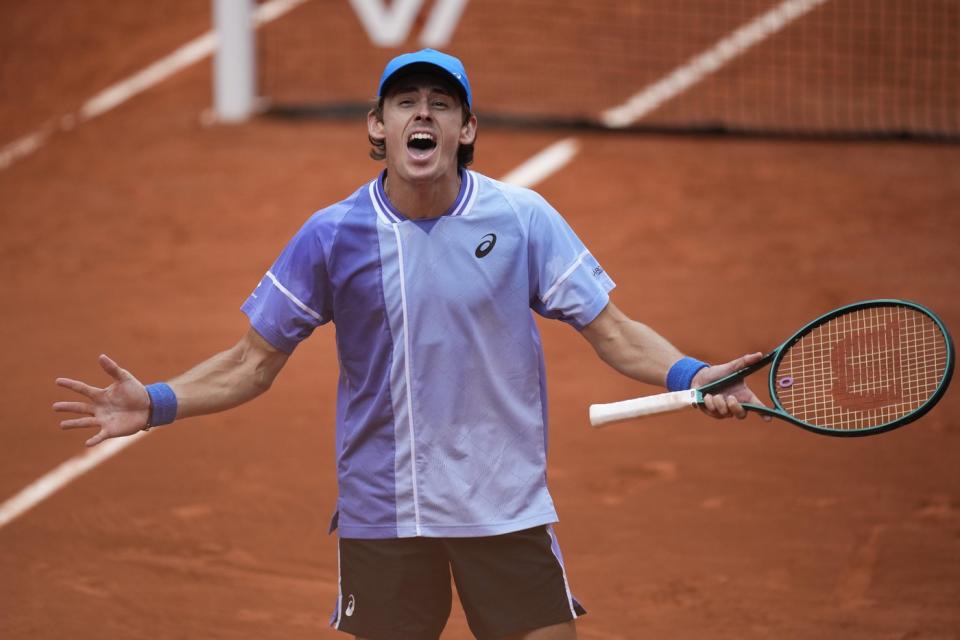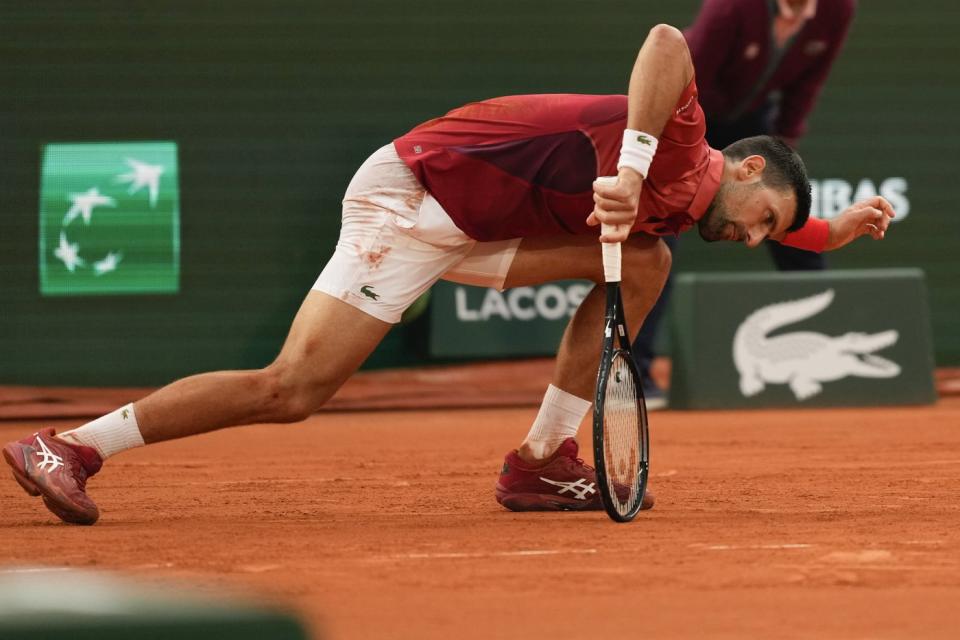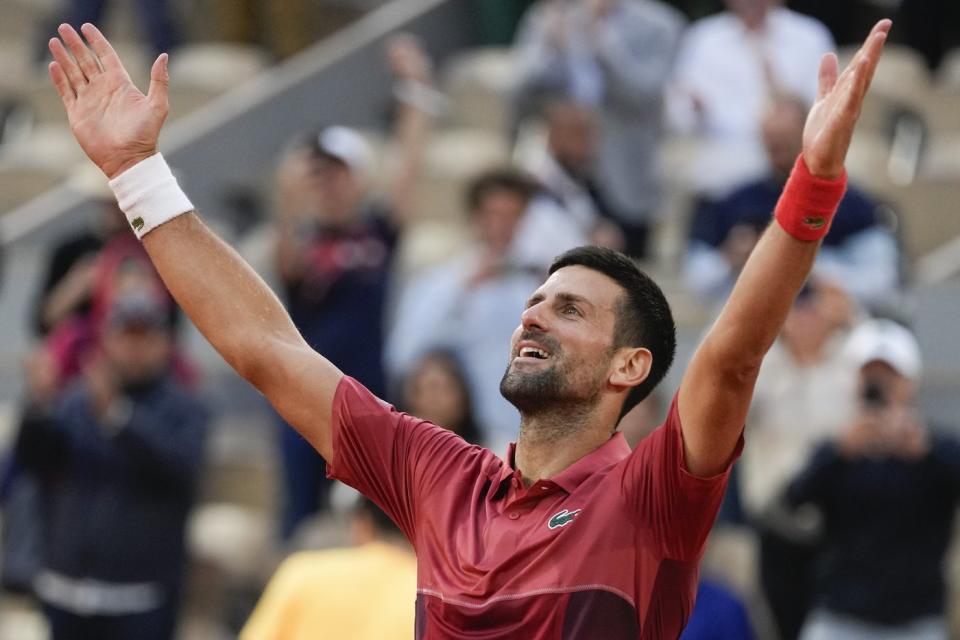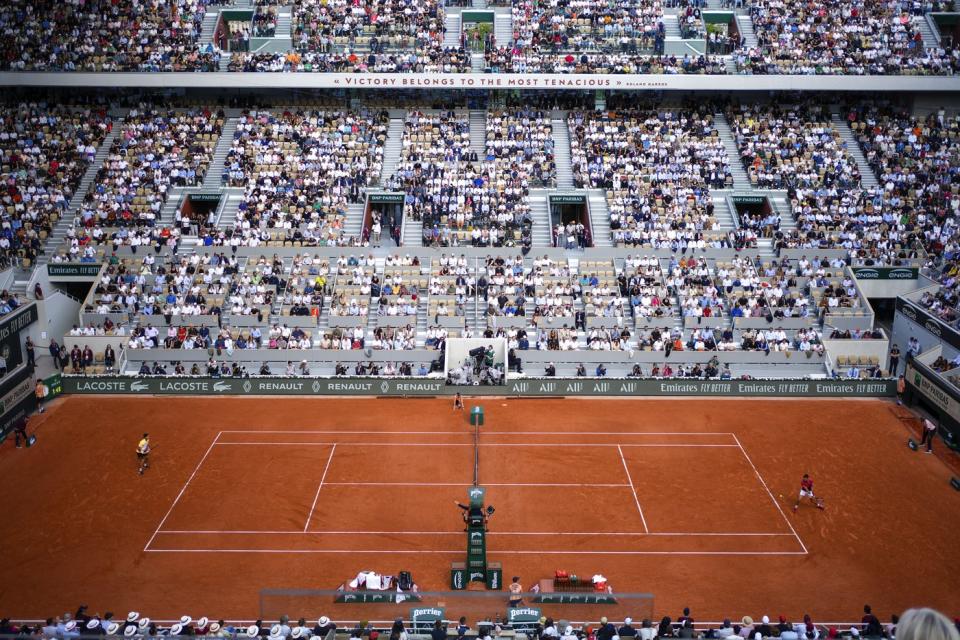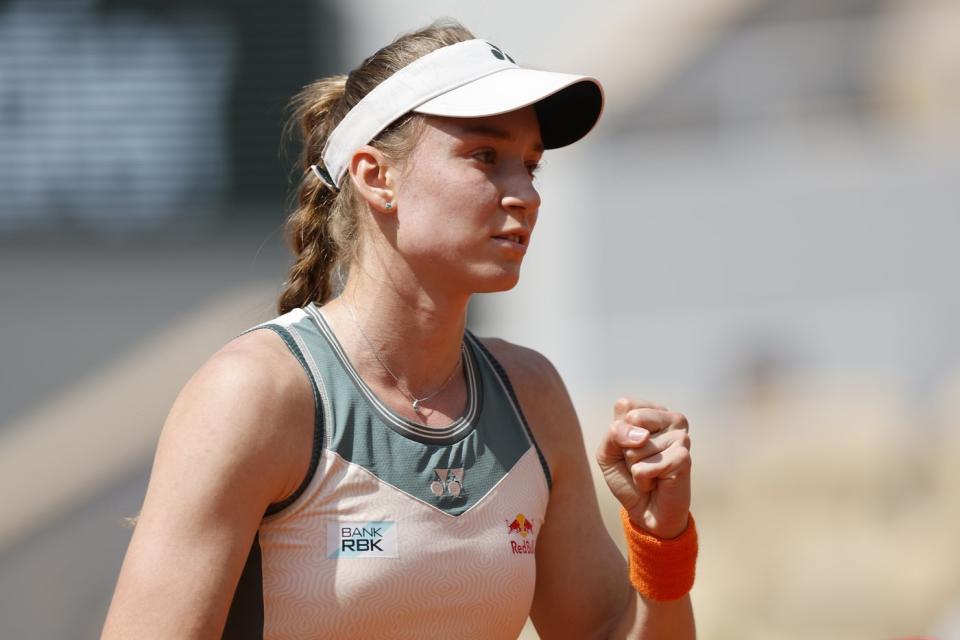Novak Djokovic wins his record 370th Slam match but isn't sure he can continue at the French Open
PARIS (AP) — Novak Djokovic was not sure whether he would be able to play in the French Open quarterfinals after injuring his right knee and needing anti-inflammatory pills Monday to be able to finish beating No. 23 Francisco Cerundolo 6-1, 5-7, 3-6, 7-5, 6-3 in the fourth round at Roland Garros for his record 370th win in a Grand Slam match.
“Good thing about the Slam is that you have a day between that will allow hopefully the healing process to happen more efficiently for me,” Djokovic said. “That’s it. I don’t know what will happen tomorrow — or after tomorrow, if I’ll be able to step out on the court and play. You know, I hope so. Let’s see what happens.”
Djokovic said he has been bothered by the knee for a couple of weeks, but it got worse after he tweaked it early in the second set Monday. He took a medical timeout, then was visited a few other times by a trainer and a doctor, who gave him the medicine — both during the second set and again after the third — that Djokovic said eventually helped him feel better and move without restrictions. According to Djokovic, the doctor said he was taking the maximum number of anti-inflammatories allowed.
This was the second consecutive five-set comeback victory that lasted about 4 1/2 hours for Djokovic, who is ranked No. 1 and the defending champion in Paris. He said that accumulation of time on court was not a problem; his knee was, however. It was painful enough that Djokovic considered quitting against Cerundolo.
“I didn’t know, to be honest, whether I should continue or not,” he said.
He is supposed to meet No. 7 seed Casper Ruud in the quarterfinals on Wednesday. Ruud, who eliminated No. 12 Taylor Fritz in four sets Monday, lost to Djokovic in the French Open final last year and to Rafael Nadal in the 2022 title match.
“The effect of the medications will not last for too long, so I’ll see,” Djokovic said. “I guess we’ll do some more screening and tests and checkups tomorrow, as well.”
He broke a tie with Roger Federer for the most match wins at major tournaments — and also for the most Slam quarterfinals for a man by reaching the 59th of his career. But just barely.
“I was,” Djokovic said afterward, “maybe three or four points away from losing this match.”
Still, he came through in ways he has so often over his years of dominance and 24 major trophies, a total that includes three at the French Open. He both turned around a contest after trailing — go ahead and ask Federer about holding match points against the guy — and emerging when the tension is greatest. Djokovic is 40-11 in fifth sets over his career; compare that with Cerundolo’s 1-3 mark, and the outcome should surprise no one.
“Really, the toughest guy ever to play tennis,” Cerundolo said. “He always finds a way to come back and play his best tennis at the toughest moments and at the end of every match.”
Djokovic trailed by two sets to one, and was down a break at 4-2 in the fourth, putting him two games from defeat.
Of more concern than that gap was the pain in his knee — and the lack of clay on the court that Djokovic said was causing him to lose his footing. He repeatedly asked for the surface to be swept more often than just after each set, but those entreaties were denied.
At 2-1 in the crucible of the fifth set, Djokovic’s feet gave way as he chased a ball to his right, and he rolled on the ground, caking his white shorts, his red shirt and parts of his arms and legs with the rust-colored clay. As he walked to the sideline to grab a bottle of water to clean off, he gave a piece of his mind to anyone who would listen, renewing an earlier complaint about wanting the court to be swept to improve traction.
“Well done, supervisor and everybody,” Djokovic said, his voice drenched in sarcasm. “Not slippery at all.”
At his news conference, he restated his concerns and his disappointment in the decision to not do more about the clay.
“I’m just trying to understand: If a player is feeling a certain way, what else do we need to wait for, for that to happen? I mean, today I injured myself. Yes, I survived. I won the match. Great. But will I be able to play next one?” he said, tapping his palms on the table in front of him for emphasis. “I don’t know. I don’t know the severity of the injury. But could have this injury be prevented? Possibly, if there was just a little bit more of a frequent care of the court during the set.”
___
AP Sports Writer Jerome Pugmire and Associated Press Writer Tom Nouvian contributed to this report.
___
AP tennis: https://apnews.com/hub/tennis
Howard Fendrich, The Associated Press

 Yahoo Sports
Yahoo Sports 